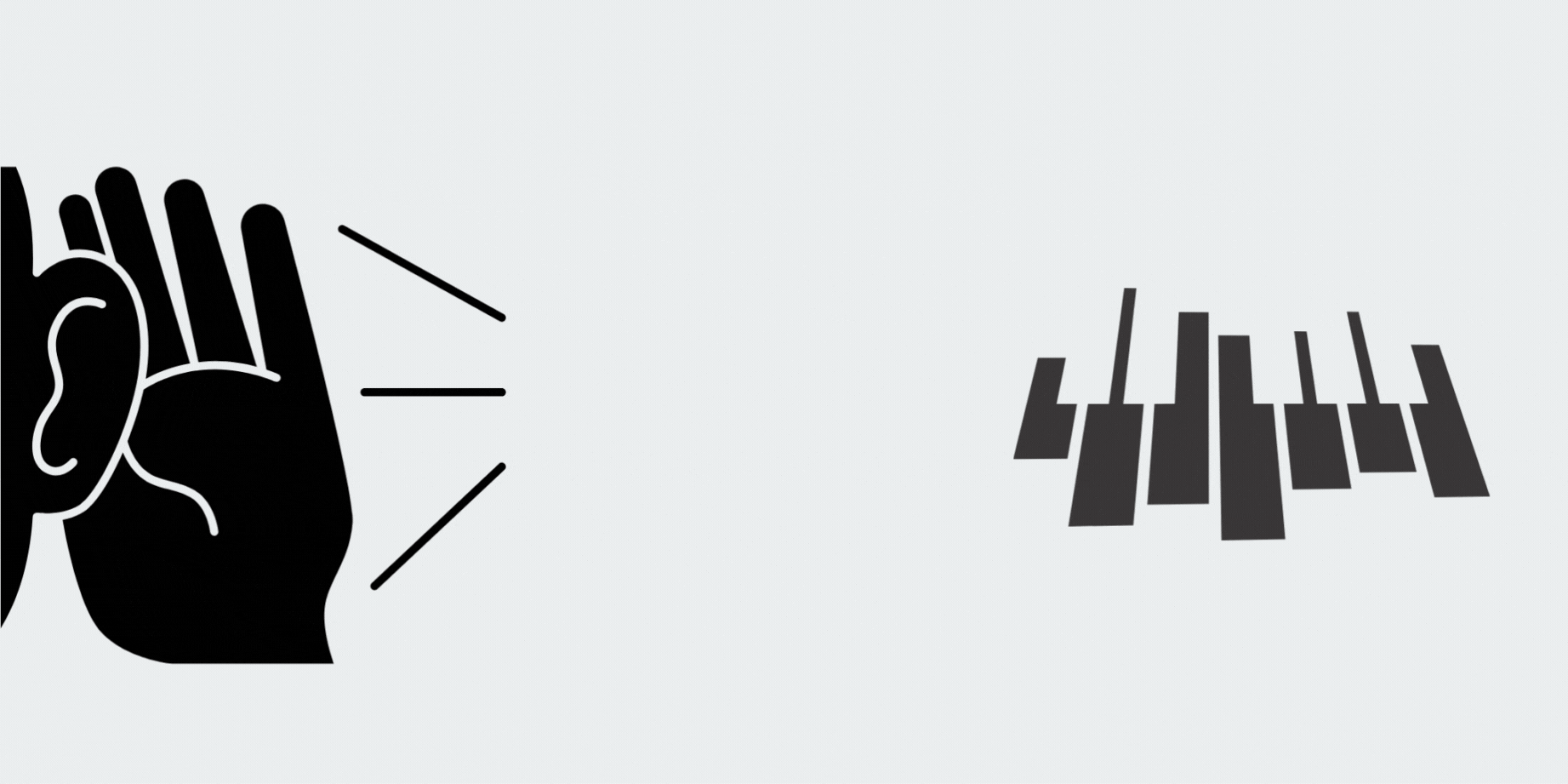Does Perfect Pitch Really Matter? Insights From A Transcriber.
In musical circles, perfect pitch often gets treated like a superpower—the rare ability to name any note or chord instantly, with no reference tone needed. Especially when it comes to transcribing music, people often assume that if you don’t have perfect pitch, you’re automatically at a disadvantage.
There’s some truth in that perception. I’ve seen people with perfect pitch transcribe extremely dense and complex harmonies with impressive accuracy and speed. One example is June Lee, whose transcriptions I’ve admired for years. His ear for detail and ability to identify stacked harmonies in real time is something I genuinely look up to.
But here’s what I’ve come to believe through my own experience as a transcriber: a finely tuned relative pitch can be just as powerful—maybe even more versatile over time.
Relative Pitch in Practice
I don’t have perfect pitch. But I do rely heavily on my relative pitch, and it’s what enables me to transcribe the music I do. Once I can identify a single pitch in a chord or melody—whether by testing at the piano or intuiting it from the context—my ear can usually fill in the rest. Intervals, harmonic shapes, voice leading… those things unfold pretty naturally from that first reference point.
This isn’t some innate gift. It’s the result of long-term ear training: exercises in interval recognition, active listening, singing lines and finding them on the piano, and lots of repetition. In time, relative pitch becomes almost reflexive—it allows you to hear the underlying structure of the music rather than just isolated sounds.
The Limits of Perfect Pitch?
Interestingly, some recent research suggests that perfect pitch may not be as “absolute” as once thought. A 2020 study published in Music Perception found that people with perfect pitch were susceptible to pitch drift after exposure to detuned music. In one experiment, participants with perfect pitch didn’t notice a slow detuning of a musical excerpt—and afterward, they identified the new, off-pitch notes as if they were correct (source).
This doesn’t mean perfect pitch isn’t real or valuable. But it does suggest that it might be more plastic—and more vulnerable to change—than we typically assume. Anecdotally, I’ve also heard musicians with perfect pitch say they sometimes find it limiting or even frustrating, especially when listening to music that isn’t in concert pitch or is slightly out of tune.
Mindset Matters
If you’re someone who feels “less than” for not having perfect pitch, I hope this offers some encouragement. Relative pitch can be trained, honed, and developed continually. And in some ways, it invites more flexibility than perfect pitch does. You’re not stuck labeling tones—you’re interpreting relationships, hearing how things move and connect.
To me, that’s the real magic. It’s not about being born with some rare trait; it’s about developing your ear intentionally and creatively. Relative pitch gives you the tools to build your own internal framework for understanding sound. And over time, that can become just as instinctive as naming a note on command.
A Final Thought
This isn’t meant to downplay perfect pitch or its usefulness—especially in transcription work. But I do think it’s worth recognizing that there are multiple ways to cultivate a deep, sensitive musical ear. And for many of us, relative pitch may offer the more reliable long-term path—not just for transcribing, but for truly hearing music from the inside out.

